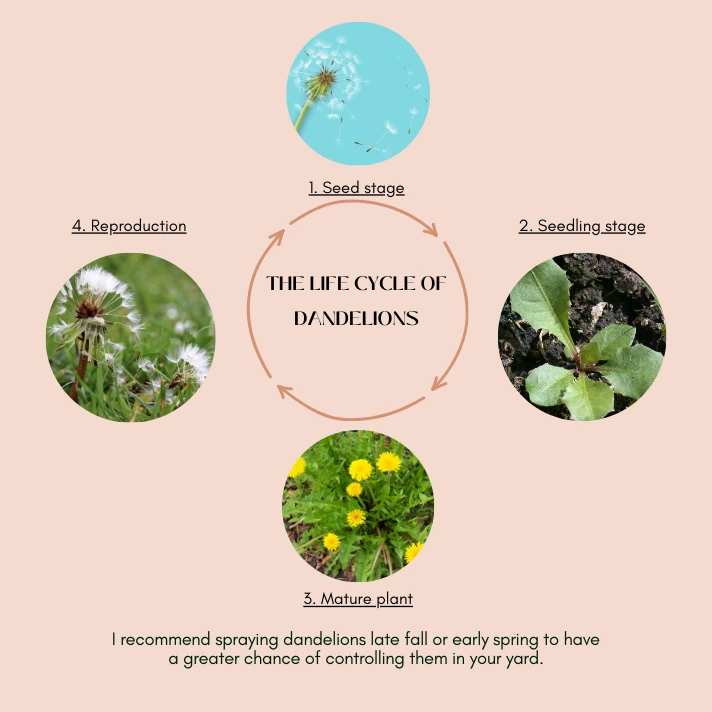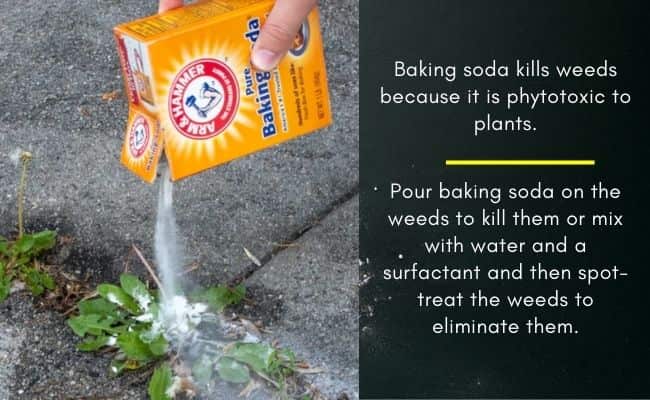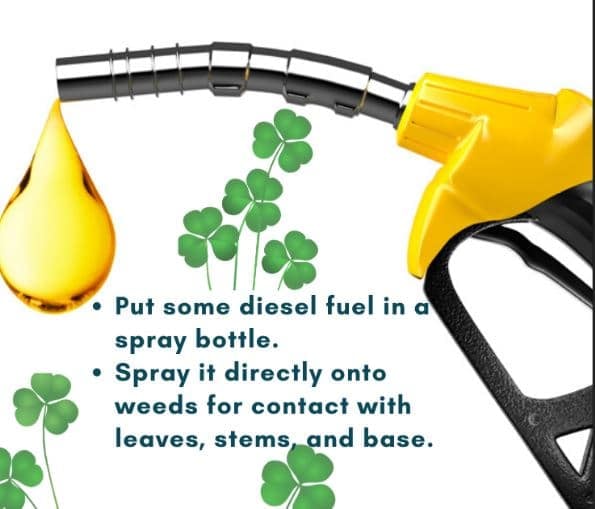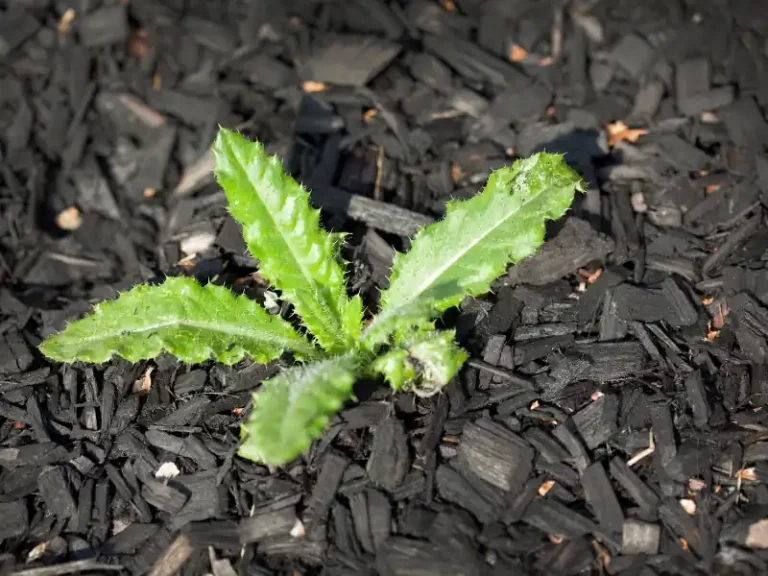5 Alternatives to Roundup Safer than Glyphosate
The active ingredient in Roundup, Glyphosate, is classified as “probably carcinogenic to humans” by The International Agency for Research on Cancer. So, what are the safer alternatives to Glyphosate for controlling weeds in your garden, lawn, and yard?
Homemade weed killers such as vinegar and salt are great alternatives to Roundup. Burnout II Weed and Grass Killer contains clove oil and citric acid which are great organic substitutes for Glyphosate for domestic and large-scale weed control. Herbicides containing Glufosinate are also safer options.
5 Best Roundup Alternatives
Organic weed killers are considered non-toxic and non-carcinogenic. My research found that products containing ingredients such as clove oil, citric acid, Diquat, and ammonium nonanoate do not pose the risk of cancer, making them safe options.
| Image | Product Name | Active ingredient | Price |
|---|---|---|---|
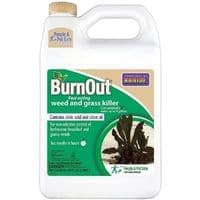
|
Burnout II Weed & Grass Killer Concentrate |
|
|
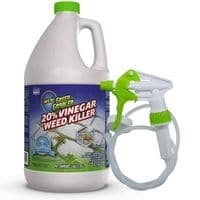
|
Green Gobbler Vinegar Weed & Grass Killer |
|
|
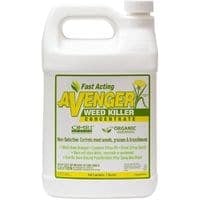
|
Avenger Organic Weed Killer |
|
|
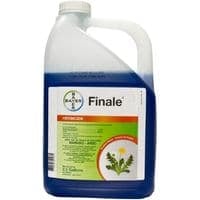
|
Finale Herbicide |
|
|
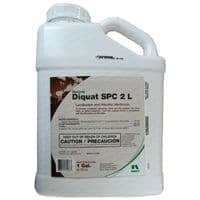
|
Generic Reward Diquat E-Pro |
|
So I tested all these herbicides to see how effectively they kill weeds. Below, I’ve provided as much information as possible, with evidence of their action.
1. Burnout II Weed & Grass Killer Concentrate
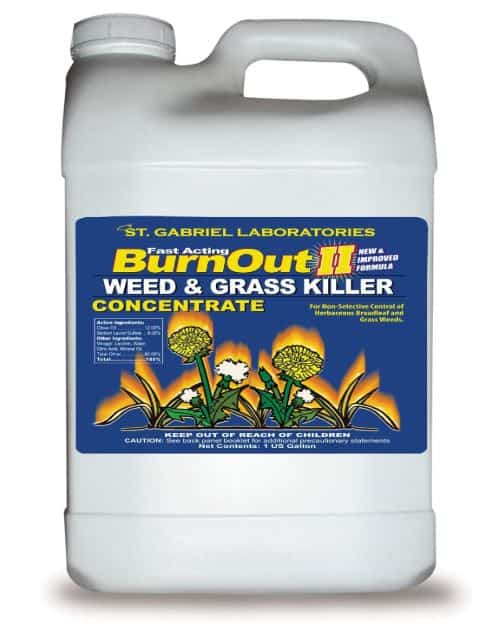
- Natural active ingredients: Carylic and capric acids.
- Burnout kills both grassy and broadleaf weeds.
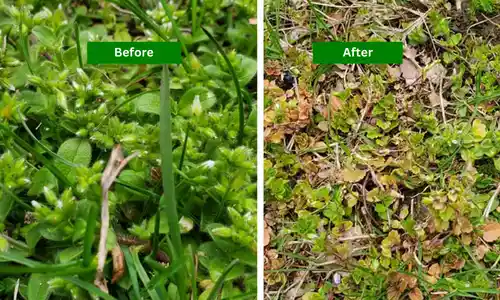
Burnout II contains natural, non-carcinogenic ingredients, including Carylic and Capric Acid, which are just as effective as Roundup. Contact with the foliage resulted in rapid plant destruction and desiccation.
Burnout II kills ragweed, bluegrass, quackgrass, chickweed, oxalis, foxtail, dandelion, plantain, and many other weed killers. Check Burnout II’s label here.
2. Green Gobbler Vinegar Weed & Grass Killer
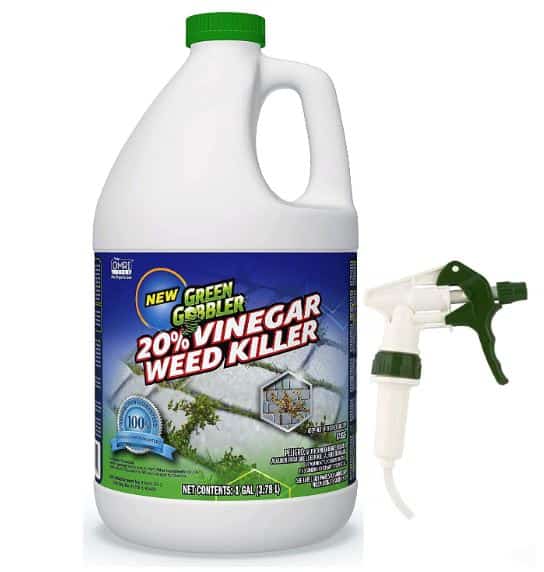
- Non-toxic alternative to glyphosate
- Can kill grassy + broadleaf weeds
- OMRI-certified as a safe herbicide for humans + pets.
- Kills even stubborn weeds like crabgrass.
My #1 Roundup alternative for small-scale use is vinegar. The acetic acid in vinegar is potent and kills weeds to the root on contact and when absorbed.
You can use vinegar to naturally kill weeds in the lawn, driveways, and garden, though it is only a spot treatment since it is non-selective. Just like Roundup, 20% vinegar weed killer concentrate will desiccate any plant it comes in contact with.
I mixed it with salt to improve its efficacy because I wanted to kill weeds permanently.
List of weeds it vinegar organic weed killer controls: Oxalis, Quackgrass, Crabgrass, Dandelions, Cloverweed, Chickweed, and just about any other weed in the lawn and garden, making it a great alternative to glyphosate.
I’ve done separate tests for killing weeds with salt, and the results were great.
3. Nature’s Avenger Organic Weed Killer Concentrate
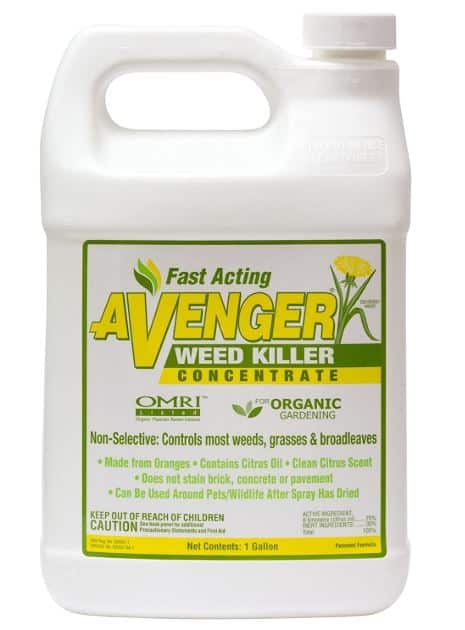
- Does not stain concrete and pavers.
- Very effective natural non-selective weed killer.
- Fast-acting weed killer (see results in 2 hours).
Avenger is a great alternative you can use instead of Roundup. The active ingredient in this herbicide is citrus oil extracted from oranges, making it a non-toxic option to glyphosate herbicides.
It works by naturally stripping away the waxy plant cuticle, causing it to dehydrate and die. You can use it on your lawn and garden as a spot treatment for stubborn weeds.
Avenger Organic Weed Killer concentrate is a non-selective contact herbicide that kills crabgrass, dandelions, creeping charlie, nutsedge, and many others.
4. Finale Herbicide
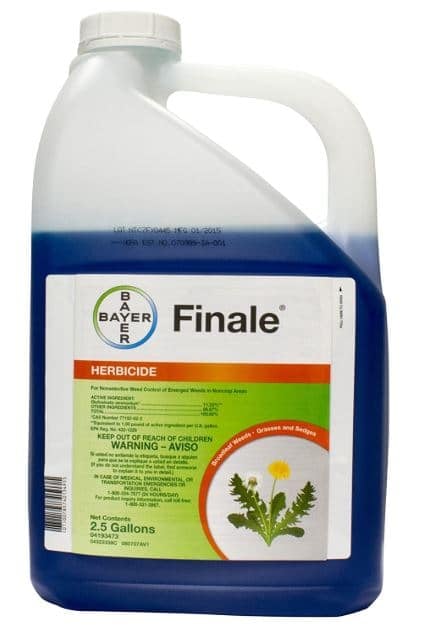
- Active ingredient: glufosinate-ammonium
- Kills weeds fast and permanently. Results in 1 to 4 days.
- Low soil residual effect.
- You can seed or transplant within hours of application.
Finale Herbicide kills chickweed, dandelion, clover, crabgrass, quackgrass, foxtail, barnyard grass, annual bluegrass, goosegrass, etc.
5. Diquat E-Pro
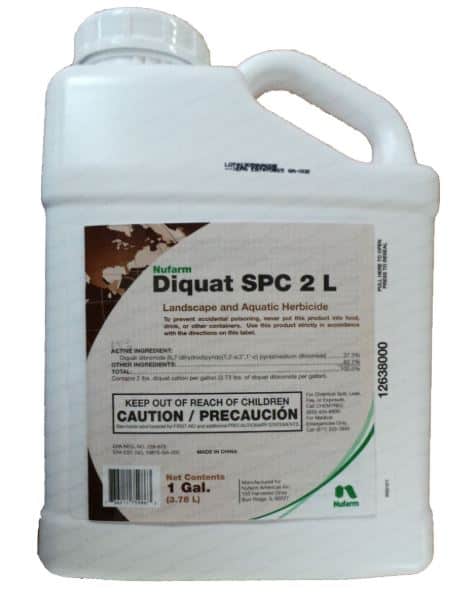
- Non-carcinogenic glyphosate alternative for aquatic weed control.
- Fast-acting post-emergent – results in 2 days.
- Very good for duckweed and red Azolla weeds in ponds.
Diquat is a contact herbicide that causes desiccation and defoliation to kill and control herbs. This way, it interferes with the photosynthesis of plants and, therefore, the cell membrane functions.
You can also use Diquat to kill weeds in landscapes, ponds, and other aquatic settings. Common effective Diquat brands include Syngenta, Nufarm, and Reward.
Commercial organic herbicides
Commercial landscape weed control involves covering large areas to control weeds. Here are some active ingredients and commercial herbicides that are safe alternatives to Roundup.
| Organic herbicide | Commercial products |
| Acetic acid | Weed Pharm; GreenGobbler Vinegar Weed Killer |
| Clove oil | Burnout II; Matratech; WeedZap; |
| d-limonene | GreenMatch; Avenger Organic Weed Killer |
| Citric Acid | C-Cide |
| Carylic and Capric Acid | Burnout II |
| Glufosinate ammonium | Cheetah® Pro; Roundup Pro |
| Diquat | Diquat Landscape; Reward; Aquatic |
Homemade Roundup alternative
You can also make your own DIY weed killer using vinegar, dish soap, and salt. Salt and vinegar quickly desiccate plants by impairting their ability to draw water for cell growth. The weed killer can be used to control weeds in driveways, patios and between crevices just as well as Roundup would.
Here’s how to make a homemade weed killer that works like Glyphosate:
- Add half a cup of salt in a gallon of vinegar.
- Add two tablespoons of dish soap.
- Stir to mix well.
- Pour the weed killer into a spray bottle.
- Spray the potent solution on weeds everyday until they die.
Glyphosate and Cancer
“The herbicide glyphosate and the insecticides malathion and diazinon were classified as probably carcinogenic to humans (Group 2A).”
If you live in California, you’re probably aware of the warning issued on Glyphosate as a possible cancer-causing chemical.
Is glufosinate safer than Glyphosate?
Glufosinate is found in herbicides as an ammonium salt that occurs naturally. It is a broad-spectrum herbicide that is safer than Glyphosate, as it has not been classified for carcinogenic effects.
Although glyphosate is a highly effective non-selective herbicide, some weeds, such as waterhemp and horseweed, are resistant to it.
Glyphosate is more effective on stubborn weeds such as annual grassy weeds, while glufosinate is more effective on annual broadleaf weeds. It may not be very effective on perennial weeds such as mugwort, bindweed, Bermuda grass, and goldenrod.
Their modes of action differ. Glufosinate is a contact weed killer that is locally systemic, while glyphosate is a fully systemic herbicide. Glyphosate is highly successful as a non-selective weed killer because it is translocated through plant cells and will destroy weeds to the root.
References
- International Agency for Research for Cancer: IARC Monographs Volume 112: evaluation of five organophosphate insecticides and herbicides
- AgFax: Do you know the difference between Glufosinate or Glyphosate?
- UC Wee Science: Natural Herbicides: Are they effective?


![How to Get Rid of Creeping Charlie with Borax [Picture Results]](https://gardenine.com/wp-content/uploads/2020/05/How-to-Kill-Creeping-Charlie-using-Borax.jpg)
